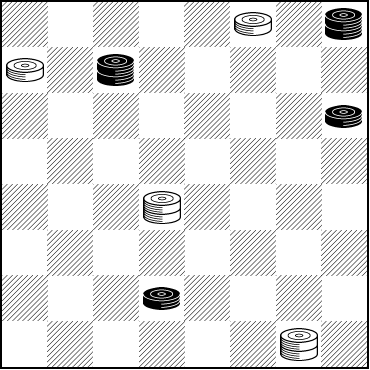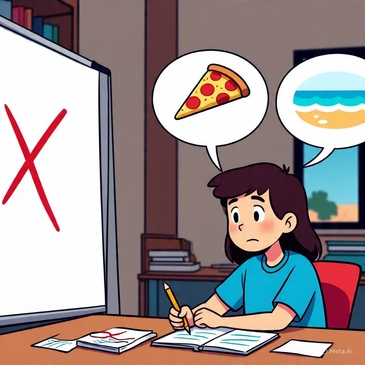The Checker Maven
Jump to navigationChecker School: Memory and Concentration

Intense focus and concentration. You can't play championship checkers without it.
In today's Checker School installment we learn something that Mr. Andrew J. Banks thinks is important. Here's what he had to say in his unusual and entertaining book Checker Board Strategy as published some 80 years ago.
MEMORY --- CONCENTRATION
Concentration is the second method of developing a logical memory. As we walk down Pennsylvania Avenue, crowded with people and noisy traffic, or stop for a foamy, fizzy strawberry ice cream soda, we concentrate upon only about one one-hundreth of what is going on around us. In the same way, it is possible to run over a checker game and learn practically nothing. On the other hand, when the Internationalist showed Hatley how to solve a problem, Hatley's eyes popped open as he took in some startling maneuvre. He was alert; the new idea stood out on the horizon of this memory "like Mars at Perihelion." By concentration, we remember ideas rather than moves.
To illustrate his point, which we believe is that attentive problem solving yields more results than inattentive game replay, Mr. Banks gives us the following problem.

BLACK
Black to Play and Draw
B:WK1,K15,28,30:B7,21,K27,K29
It's quite a nice little problem, with two solutions, the shorter way (which Mr. Banks surely intended you to find) or the longer way. Go for the shorter way and see if you can find it, then concentrate your mouse on Read More to see the solution.![]()
Solution
29-25---A 1-6 25-22 6-2 22-26 2x11---B 26-23 Drawn---C.
A---27-23 leads to a much longer draw.
B---30-23 27-11 to a Black Win.
C---Black gets at least a 2 for 1 and wins unless White gives away a piece with 15-18, 28-24, 30-26 or 30-25.
15-10? 27-24 28-19 23-14 Black Wins.
11-16? 23-26 30-23 27-20 Black Wins.
11-7? 23-26 30-23 27-2 Black Wins.
The problem was originally attributed to one J. Roll, about whom we have no information other than his name.
Were you able to keep your focus and solve this, or did your mind drift to ... other things? In any event we hope you enjoyed this one.

The Checker Maven is produced at editorial offices in Honolulu, Hawai`i, as a completely non-commercial public service from which no income is obtained or sought. Original material is Copyright © 2004-2026 Avi Gobbler Publishing. Other material is public domain, AI generated, as attributed, or licensed under CC1, CC2, CC3 or CC4 and the various CC options. Information presented on this site is offered as-is, at no cost, and bears no express or implied warranty as to accuracy or usability. You agree that you use such information entirely at your own risk. No liabilities of any kind under any legal theory whatsoever are accepted. The Checker Maven is dedicated to the memory of Mr. Bob Newell, Sr.
